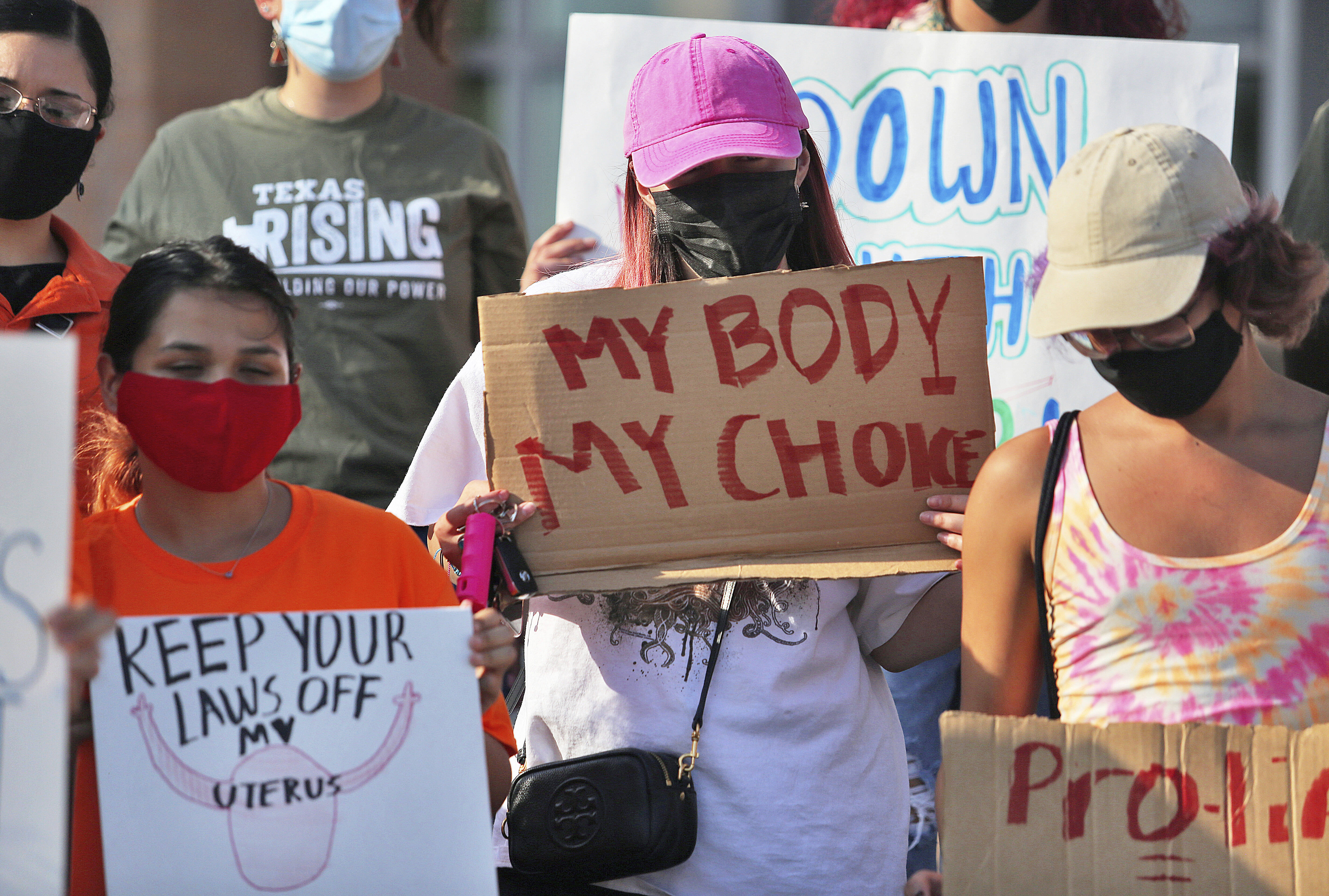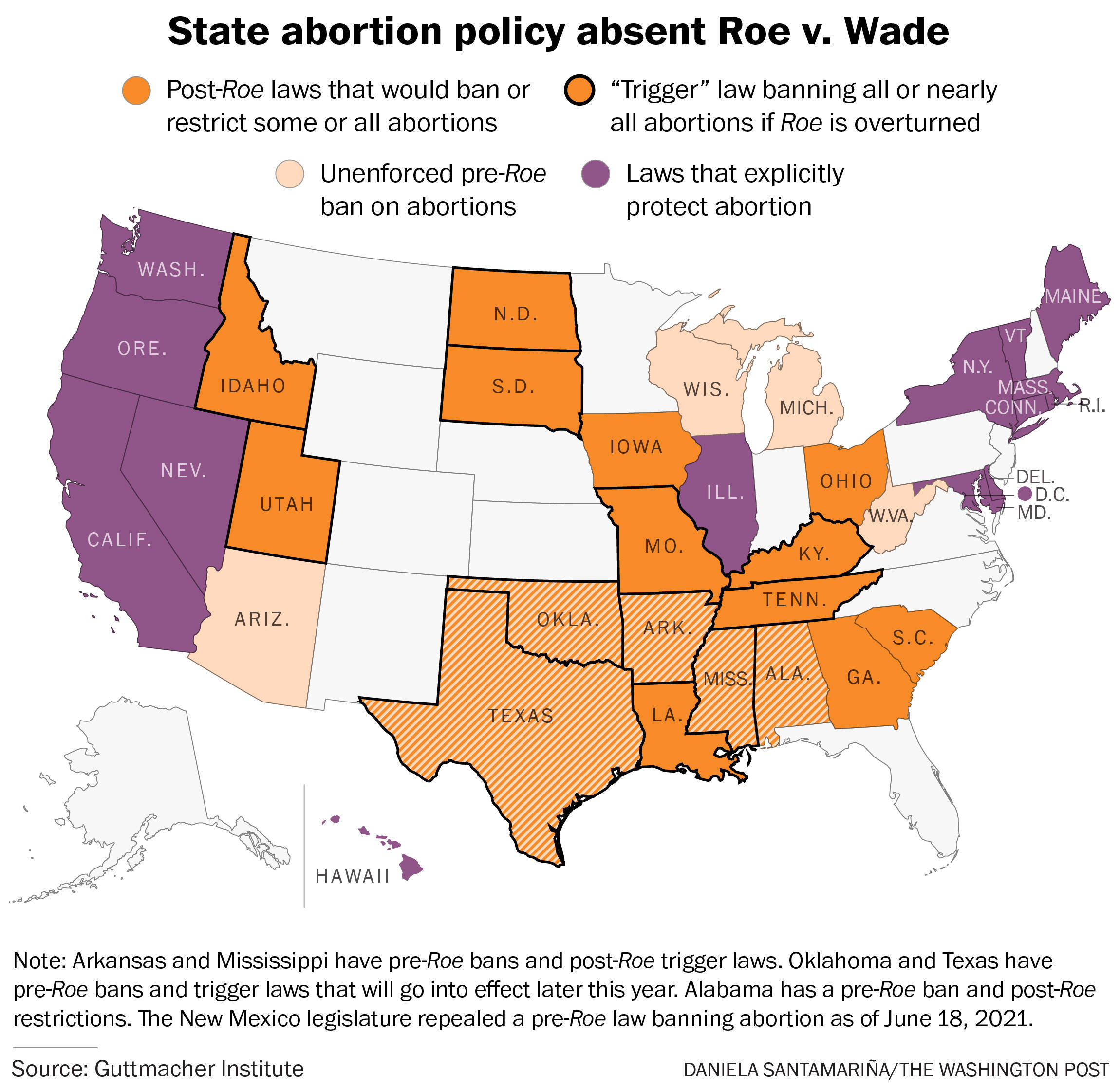| A publishing note: The 5-Minute Fix will not publish Friday or Monday during the long holiday weekend here in the U.S. See you again Tuesday. We need to talk about Roe v. Wade. That's the 50-year-old Supreme Court decision that legalized abortion nationwide. And it could be revisited very soon. What happened: The high court decided not to block a Texas law banning most abortions after six weeks that even some of the justices said was blatantly unconstitutional. (We reviewed the law in Wednesday's newsletter; more is here.) Why that's significant: The justices didn't officially rule on whether the Texas law is constitutional. They just said it will stay in place while that question is litigated. But they could have put the law on hold while the merits of the case were argued. Keeping it intact — even as some justices said they acknowledge its potential unconstitutionality — was an unexpected move that could signal the court is ready to strike down Roe v. Wade, said Lisa Soronen, executive director of the State and Local Legal Center, which supports municipalities in cases before the Supreme Court. "The justices know that this Texas law violates Roe v. Wade," she said. "They all know that." Keeping the law in place doesn't overturn Roe, but it does make a "really big statement about what they think of Roe," Soronen added. What happens next: It will take a while for this Texas law to make its way through the courts. But this fall, the justices have an opportunity to knock down Roe v. Wade if they want. They'll hear arguments in a Mississippi law that bans most abortions after 15 weeks.  Abortion rights supporters protest the state's new law in Edinburg, Tex., on Wednesday. (Joel Martinez/The Monitor via AP) | There is no federal law protecting abortion rights The 1973 Supreme Court ruling in Roe v. Wade is the only federal protection in America for abortion. It guarantees a woman's right to get an abortion in the first half of her pregnancy, before the fetus would be viable outside the womb. If the court knocked down Roe, the states could regulate or allow abortion as they choose. The Guttmacher Institute, which supports abortion rights, estimates that abortion could be severely restricted or illegal in as many as 22 states if the Supreme Court overturns its legal protections for abortion. That's in large part because Republicans control so many state legislatures across America. (Fifteen states have laws on the books protecting abortion rights.) The only other option would be for Congress to step in to protect abortion rights. Add it to the list of the many things Democrats in Washington are trying to do right now as a runaround to Republican-led states (think voting rights, climate change legislation, expanding the government safety net). Let's also talk about a conservative Supreme Court A law like the Texas ban — and the Supreme Court's reaction to it so far — was one of abortion rights advocates' worst fears when former president Donald Trump appointed three conservative justices, saying in the process that he wanted to end legalized abortion. That is closer than ever to happening. The court has taken a pretty decided lean to the right since Trump's final pick, Justice Amy Coney Barrett, cemented its 6-3 conservative majority, writes The Post's legal team. Besides letting the Texas law stand, the court also has: - ended President Biden's national eviction ban, even though the Centers for Disease Control said it was warranted because of the pandemic
- told the Biden administration to revive a Trump-era policy requiring asylum seekers to stay in Mexico
- okayed more restrictive voting laws in Arizona
Coming up in the next year, this newly conservative court will weigh in on abortion, guns and free speech. | 





No comments:
Post a Comment